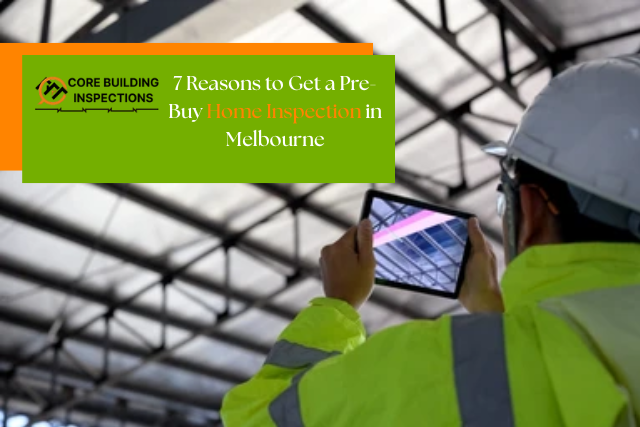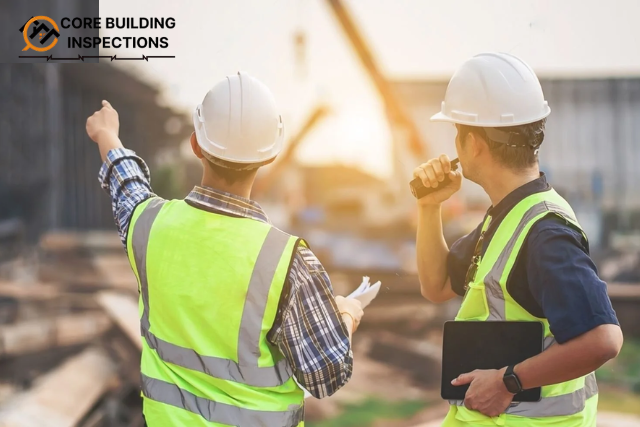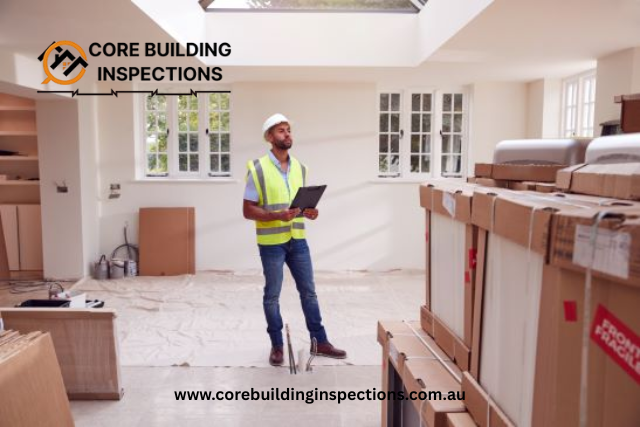7 Tips for a Successful Pre-Purchase House Inspection in Victoria

Why Slab Inspections Are Trending in Melbourne Builds
September 21, 2025
Pest Inspection Service 101: What to Expect During an Inspection
October 6, 2025Buying a house is a vast money decision. The market in Victoria can be challenging, and it’s easy to get carried away. That’s why you should never skip the house inspection before you buy.
A good inspection protects you from hidden problems and expensive surprises. It makes sure you’re buying a good investment, not just your dream house. Here are seven tips to help things go well when you inspect a house in Victoria.
1. Understand the Scope of a Standard Inspection
Before you even book a professional, you need to know what a standard Victoria pre-purchase house inspection typically covers. Don’t assume a general building inspection includes everything.
What a standard inspection report should include:
- Big Problems: This part’s about serious stuff – foundation, walls, roof, floors. These issues could make the whole building unsafe and cost a lot to repair.
- Minor Problems: This covers things that aren’t about the structure, like wall cracks, minor leaks, or broken fixtures. Fixing them won’t break the bank, but they can add up.
- Things That Could Hurt You: The inspector checks for risks like bad railings, messed-up wiring, or anything wobbly that could cause an accident.
What a standard report often does NOT cover:
- Pest and Termite Checks: In Victoria, you need to book a special pest and termite check separately. Since termites are all over the place here, it’s really something you should do.
- Wiring and Pipes: The inspector will point out anything obvious that’s wrong, but keep in mind they aren’t qualified electricians or plumbers. If the house is older, think about getting a separate check for the wiring and pipes.
- Asbestos: If you want to know for sure about asbestos, you’ll need a special test. The inspector will only tell you if something probably has asbestos in it.
- Hidden Problems: Inspectors can’t tell you about things they can’t see. That means stuff behind walls, under carpets that are glued down, or in hidden spots.
Pro-Tip: Always book both a Building and a Pest Inspection at the same time. The cost is a small price to pay for the peace of mind.
2. Choose a Reputable and Independent Inspector
This is arguably the most important tip. The quality of your inspection is directly tied to the expertise and integrity of your inspector.
- Make Sure They’re Licensed: In Victoria, building inspectors need to be registered with the Victorian Building Authority (VBA) as either a building surveyor or a building practitioner. Be sure to ask for their registration number.
- Go Independent: Don’t pick an inspector that the real estate agent suggests. Some might be okay, sure, but there could be a conflict of interest. An independent inspector is working for *you* and won’t try to hide any issues.
- Check Their Insurance: Professional indemnity insurance protects you if the inspector messes up or misses a big problem they should have caught. Always make sure they’re covered.
- Read Reviews and Get References: Check out online reviews on Google or social media. Also, ask the inspector for references from past clients.
3. Be Present During the Inspection
Many buyers make the mistake of simply waiting for the report. Being present during the inspection is invaluable for several reasons:
- Ask Questions in Real-Time: The inspector can walk you through their findings and explain complex issues in simple terms. This helps you understand the severity of a problem.
- Gain a Deeper Understanding: You’ll get to see the inspector examine areas you might not have thought to look at, such as the roof cavity, subfloor, or drainage.
- Clarify Potential Issues: A report might say “signs of minor cracking,” but seeing it in person allows you to ask, “Is this a cosmetic issue or a sign of a deeper structural problem?”
- Learn About the Property: This is a fantastic opportunity to learn about the home’s maintenance history, its quirks, and what to look out for in the future.
4. Prepare a List of Your Own Concerns
Before the inspector arrives, walk through the property and make a note of anything that seems off to you. This is your chance to be proactive.
- Check for Leaks: Look for water stains on ceilings, walls, or under sinks.
- Examine Doors and Windows: Check if they open and close properly. Are there any drafts?
- Look for Cracks: Note any cracks in the walls, both inside and outside. Be specific about their size and location.
- Test Fixtures: Turn on taps, flush toilets, and test lights to see if they are working correctly.
Share this list with the inspector at the start. It ensures they pay extra attention to your specific concerns and can help them spot related issues.
5. Scrutinize the Report for Actionable Information
Once you receive the report, take your time to read it carefully. Don’t just skim the summary.
- Focus on the “Major Defects” section: This is where the deal-breakers are. Any issue here, such as a compromised foundation, requires serious consideration and further investigation.
- Understand the “Minor Defects” in Totality: While one or two minor issues may seem insignificant, a long list of them can indicate a poorly maintained property and a substantial list of post-purchase repairs.
- Look for Recommendations: The report should not just state problems but also recommend the next steps. For instance, it might say “seek advice from a structural engineer” or “obtain a quote from a licensed plumber.”
6. Don’t Be Afraid to Get Additional Specialist Inspections
A general inspection is just the first step. If the report highlights a major concern, don’t hesitate to book a specialist.
- For Foundation or Cracking Issues: Hire a structural engineer to assess the problem and provide a detailed report on its cause and repair costs.
- For Electrical Concerns: Get a licensed electrician to check the wiring, switchboard, and safety switches.
- For Plumbing or Drainage Issues: An experienced plumber with a camera can do a video inspection of the pipes to check for blockages or leaks.
Spending a few hundred dollars on a specialist report can save you tens of thousands in future repair costs.
7. Use the Report as a Negotiation Tool
A pre-purchase inspection is not just about avoiding a bad buy—it’s a powerful tool in your negotiation arsenal.
- Want a Lower Price: If the report shows considerable surprise repair costs, you can use those numbers to ask for a price cut to pay for the fix-up.
- Get Them to Fix It: You can say the seller needs to get the big repairs done before you close the deal, and have your inspector check the work.
- Just Bail If You Need To: If the check-up shows the place is a total disaster or something just doesn’t feel right, don’t sweat walking away. Your agreement should have a part about inspections that lets you cancel the deal if you don’t like the report.
With these tips, you can turn a best home inspections in Melbourne into a helpful step that tells you what’s up, saves you money, and makes you sure about whether to buy or pass on the place.




